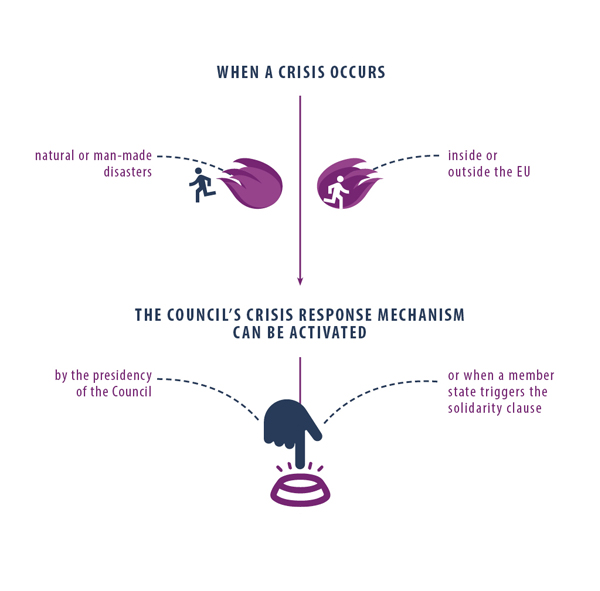What is the IPCR, the Council's response to a crisis?

date: 06/05/2020
This mechanism has been instrumental in coordinating the EU's response to major crises at the highest political level in the Union, including for COVID-19.
After the 9/11 terrorist attacks, EU leaders realised that a mechanism was needed to coordinate responses to major crises. The Integrated Political Crisis Response (IPCR) arrangements were created in 2013 to fill that gap.
The Presidency of the Council of the EU uses the IPCR to facilitate information sharing and political coordination between EU countries in responding to complex crises. It can be activated to deal with major natural or man-made disasters, including acts of terrorism, regardless of whether the event occurs inside or outside of the EU.
The IPCR so far
The mechanism was activated for the first time in 2015 during the refugee and migration crisis. It was also used during the 2014-2016 Ebola outbreak, the crises in Iraq, Syria, Yemen, Ukraine and others.
In early March, the scale of the COVID-19 outbreak demonstrated that the need to coordinate action at EU level was even greater. On 2 March 2020 therefore, the Croatian Presidency of the Council of the EU decided to fully activate the IPCR to help prepare proposals for EU action.
How does the IPCR work?
The IPCR can be triggered in two ways: by the country holding the Presidency of the Council of the EU, or following a request from an EU country. The Presidency then brings together the EU institutions, affected EU countries and other key players (e.g. NATO) to coordinate the response to the crisis.
Three operational modes
There are three operational modes, depending on the crisis:
- monitoring mode - crisis reports are shared and a 24/7 contact point is set up in the European Commission's Emergency Response Coordination Centre;
- information-sharing mode - a comprehensive situation report is produced and a web sharing platform is set up to prepare for possible escalation;
- full activation mode - in addition to the above, involves crisis meetings between EU ambassadors or ministers to prepare proposals for EU action. The IPCR was activated in full during the migration and refugee crisis in 2015, and last March to respond to the COVID-19 outbreak.

